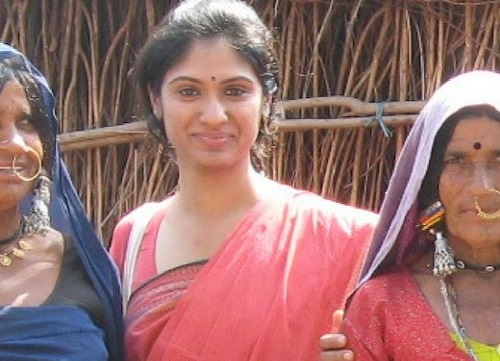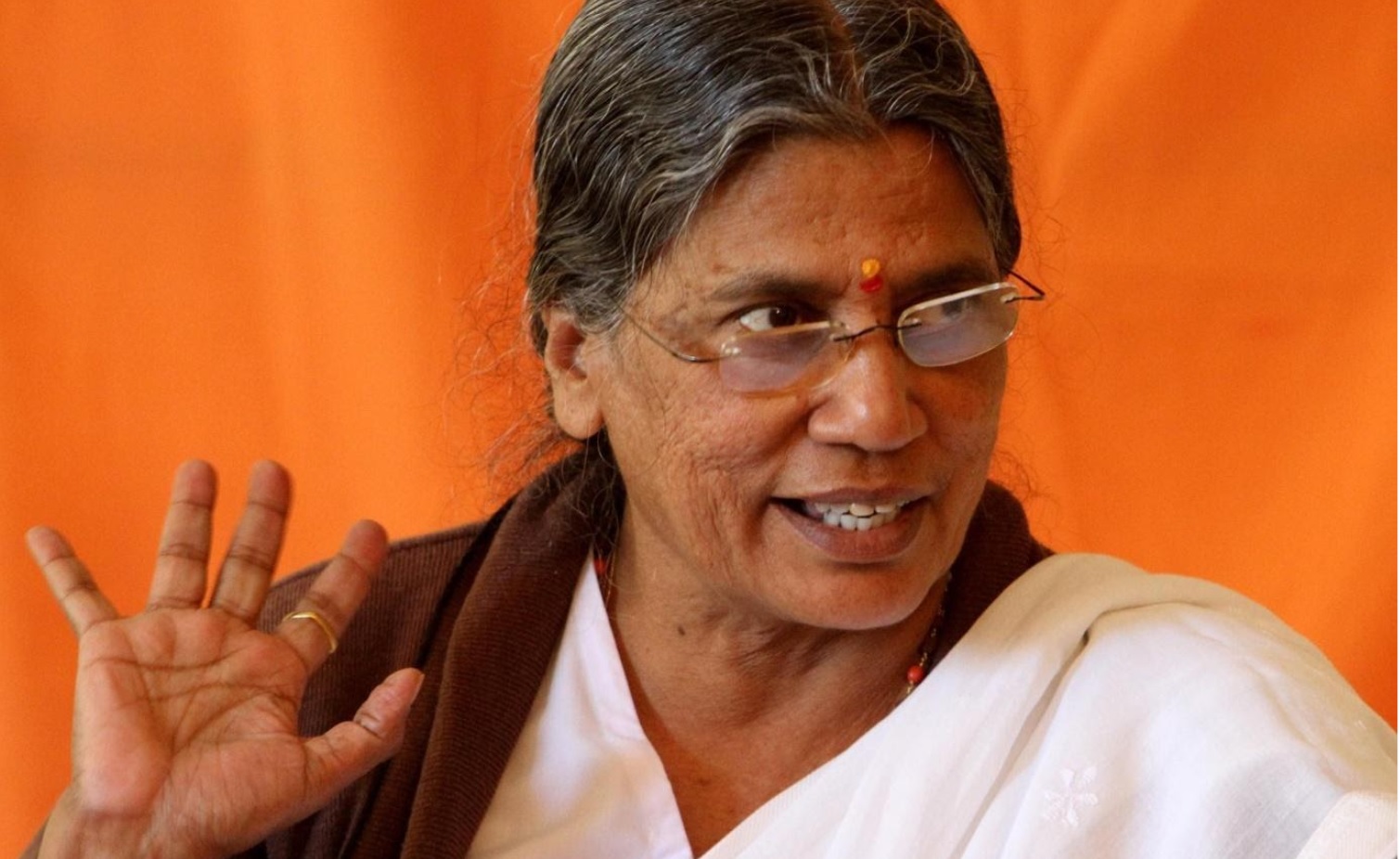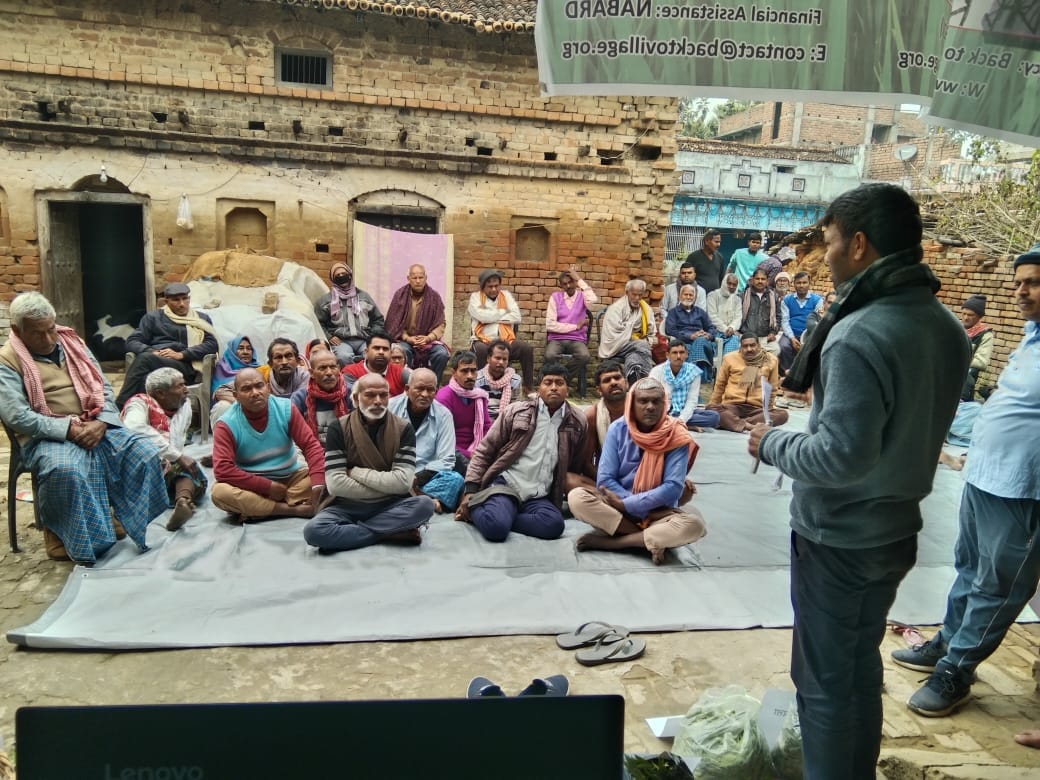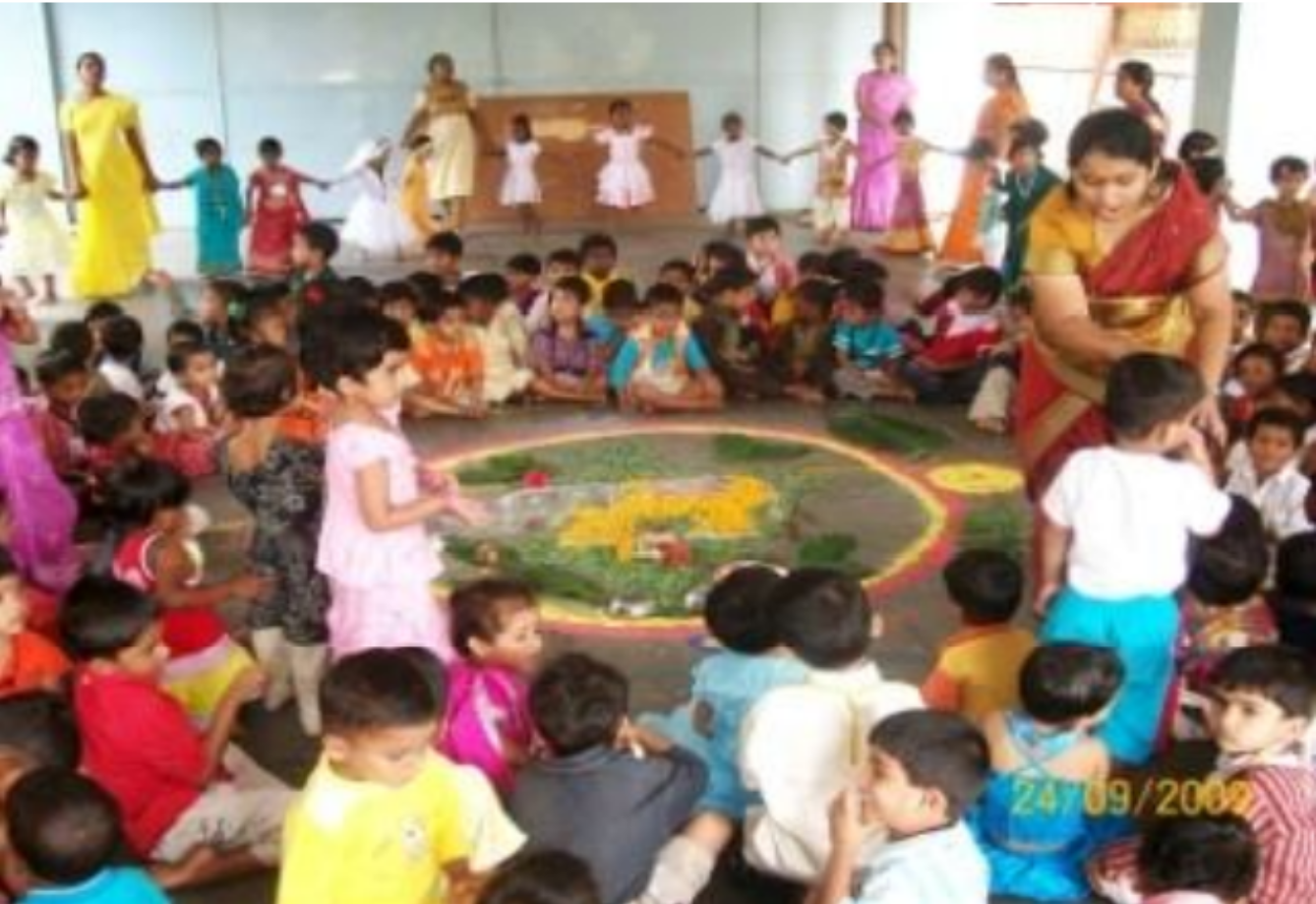(This article is based on the research and interview conducted by two Indian-American high-schoolers as part of the Dharma Internship Program 2020. The authors acknowledge the valuable suggestions and help from their mentors and program coordinator)
The day I had my first period, I was nervous. A sense of happiness, sadness and confusion all ran through my body. I frantically told my mother what had happened to me. She calmed me down and let me know it was nothing to be afraid of, but something to be happy about. Then we told all our family members, who also rejoiced when they heard the news as they congratulated me. My mother told me that we would invite our family and friends to have a ceremony to celebrate, which made me even more excited to get my period. On the day of the celebration, commonly known as the half-saree function, I bathed with turmeric, and my mother dressed me in a silk sari and gold jewelry. All the guests fed me sweets and showered me with gifts. I was given a high amount of respect as a woman, which I was taught is both strong and beautiful.
Celebrations similar to this one are also seen in different parts of the world. In South Africa, the girl celebrates with her family and friends, surrounded by delicious food and various presents. In addition to a ceremony, in Japan, the mother of the girl makes sticky rice with adzuki beans, and the rest of the family has to guess that the girl has gotten her first period. Brazil also has the tradition of letting all of the girls’ friends and family know of the good news.
However, along with celebration of womanhood, menstrual education is also of utmost importance. Governments, civic organizations, non-profits, and teachers are all helping create awareness on the subject across the world. It was our privilege to interview one such menstrual health educator in India, Sinu Joseph, who is creating awareness on this subject and has done yeoman service to the society through such education.
How it started
Sinu studied to be an engineer and worked for several years as one. However, she wanted to devote more and more of her time to society. Hence she started to volunteer with the Youth for Sewa (YFS) in Bengaluru. Soon she would find herself giving more and more time and she resigned from her well paying job to become a full-time coordinator for the volunteering organization focusing on such issues as menstrual hygiene. Later she would also co-founded Mythri Speaks Trust, where she and many others talk about menstruation as well as other important topics to women and children. There she also spent a large amount of time researching and creating instructional videos on feminine hygiene in multiple languages. She continued to travel across India to visit rural areas as well as some urban areas to share and develop her knowledge of menstruation.
Later on in her journey, she was able to research the Sabarimala Swamy Ayyappa temple as to why women are not allowed to enter temples during their periods, which she published a book on.
The Journey
In her interview with us, Ms. Sinu describes her journey. She used to volunteer at a government school teaching children. She noticed that two of the four girls in the class had dropped out. When she enquired she came to know that it was because they have their periods, and their mothers decided to make them stay home. She realized that these girls were not getting proper education on how to manage their menstruation. She tried to learn from individuals who were experts in the fields of menstruation and health, like pediatricians and gynecologists, and invited them to teach the children. There were two problems: the only focus of the sessions was on the biological aspects. The age difference between the girls and the experts made some things not palatable to the children. The specialists would only explain the process of menstruation and the effects it has on the human body, but not address the concerns or questions the girls expressed. Ms. Sinu understood that they had lost touch with what it felt to be an adolescent. She realized that to get these girls to open up, they had to understand and put themselves in the shoes of a teenager, and only then would they be able to grasp how the girls felt. She worked with her colleague from YFS, Ms. Vyjayanthi, and they both started their path off as menstrual educators. They started conducting sessions in schools through which they met with thousands of girls from hundreds of schools, educating and bringing awareness to them on this topic. She said, “Everyone and everything can in fact teach you.” Rather than just spitting out facts, they learned that they had to consider what the girls wanted to hear and learn from them.
Common Misunderstood Practices
It was this endeavor to impart menstrual hygiene that took Sinu to many villages. At first she did not have a great regard for the practices of the rural folk. However, she came to understand that rural practices were stigmatized globally due to stereotypes and misleading information. India is often assumed to have poor menstrual hygiene, as it is seen as a developing country, though this is not always the case, she told us. Many wrong assumptions occur due to misunderstandings about the Indian culture which is automatically considered as backward. For example, some women eat simple fruit- based diets during their periods. This way of eating may seem like these women are trying to ‘starve oneself’. However, this such a diet is taken because it is easy to digest, helping prevent any additional discomforts one may experience while menstruating. Another practice that is more often looked down upon is when women live in a secluded house or a hut. Unlike the negative light, it is put in, the purpose of this practice is for the benefit of the women menstruating, as it allows them to be isolated from other family members and hence the spread of communicable diseases. Even though many portray it as a backward practice, all the women who take part in this custom prefer to continue living in secluded homes during menstruation. Many of these practices around menstruation in India have scientific reasons behind them, which, as a result, makes the menstruation process a lot easier for women.
Rural vs. Urban India
Sinu also found that, along with women treating themselves differently during their periods, there is also a variation in how society views menstruation. From traveling all over India and teaching many people, Sinu has seen many differences between the way men and women think about menstruation in rural areas compared to the urban areas. While urban India is often perceived as “modern” and “open-minded,” rural India is commonly described as more “conservative.” While this might hold some truth, it is stereotyped and much negativity, and false information occurs from this. She explained, “in the villages, very naturally they feel positive [about periods], not trying to hypnotize themselves or intellectualize it, it is a very natural connection they have with nature and their bodies, which cannot be conditioned.” Along with that, she mentioned that at the beginning, they were a little shy to talk about it, but eventually, they explained that they view it as a gift from God, a way to have children, and a natural process every woman has to go through. The girls and women were most of the time delighted they were able to talk about it, and even the men were receptive to hearing and providing input in the discussions that would take place. On the other hand, she observed that “the ones with a formal education have their naturalness conditioned out of them.” In the cities, there is more stigma around the topic, and it’s considered taboo in many areas. They were reluctant to talk about it, and when men were around, the women constrained themselves even more. Many even questioned why she was asking such questions about menstruation.
Women in India tend to buy sanitary products wrapped in a plastic bag or a newspaper because of the embarrassment regarding menstruation. They also never ask a male member of the family to purchase any sanitary appliances. This negative outlook that people have about menstruation in India is a result of being conditioned to see the topic as impure and something to be looked down upon. The Hindu view on this is much different: Menstruation has an important place in the culture, it’s seen as something that brings life and something that should be treated with care. Due to this, India has many traditions and rituals surrounding menstruation to benefit women. Some lost this understanding with the arrival of the British in India as they made it their goal to force their own culture on us, without fully understanding the depth and meaning behind ours, Sinu told us.
If one looks at the global statistics, both the positive nature around menstruation and the incorporation of ayurvedic practices, the menstrual health of rural areas of India are doing better compared with the urban areas, as well as other countries. For example, a study showing the number of women experiencing heavy menstrual bleeding, or medically known as menorrhagia, has shown that 52% of women experience menorrhagia in developed European countries such as the Netherlands, Germany, Switzerland, France, and Spain (Shapley and Jordan 359–363). Meanwhile, the study showed that only 6% to 46% of women undergo menorrhagia in India (Laksham et al. 137–140). In a study analyzing the prevalence of menstrual pain or medically known as dysmenorrhea between rural and urban India, 72.5% of adolescent girls in urban areas of India have menstrual pain, while only 62.3% of rural adolescent girls have it (Thakre et al. 733-6; Wasnik et al. 1252-1256). An even more drastic difference is apparent between India and more developed countries. Singapore reported 83%, the US 85%, and finally Australia with 94% of teenage girls that experience menstrual pain (Agarwal and Venkat 365-371; Banikarim et al. 1226-1229; Parker). Through these statistics, you can see visibly the difference between how Indian women treat their periods versus women in other countries.
Thinking back to the moment I sat on what felt like a grand pedestal, a position where I had the value of a woman. It also fills me with pride and joy that my culture – the Hindu culture – lets me celebrate everything about me, even my period. It was great talking to Sinu who not only works on creating awareness about such unconventional topics but who is sensitive and also understands the nuances of the issue so well. Knowing her was such a great privilege.






